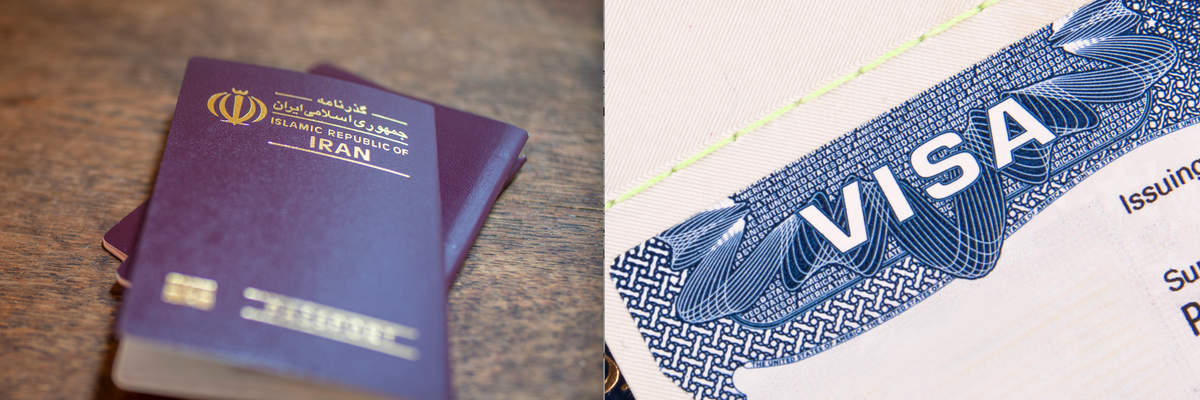On March 26, a sold-out crowd excitedly awaited the performance of internationally celebrated Iranian vocalist Alireza Ghorbani at the Segerstrom Center for the Arts in Orange County, California, as part of Pacific Symphony’s 2022 Nowruz Concert. But Mr. Ghorbani never showed up.
The day before, while boarding his flight to California, Mr. Ghorbani was approached by officers from the U.S. Customs and Border Protection at Pearson International Airport in Toronto. For several hours, Mr. Ghorbani was questioned by CBP agents, who ultimately refused his entry into the United States due to his military service in Iran’s Islamic Revolutionary Guard Corps over 30 years ago.
Aside from the personal devastation of having his visa canceled, Mr. Ghorbani could not understand how he conceivably posed a risk to the United States: he is a permanent resident of Canada, had already toured the United States on multiple visas vetted by CBP and the U.S. State Department, and recently was approved by the United States Customs and Immigration Service for an EB-1 visa, affording him permanent residency solely based upon his extraordinary career achievements.
Mr. Ghorbani explained to CBP agents that military service in Iran for men over the age of 17 is mandatory and that his duties consisted mainly of clerical office work. CBP not only disregarded Mr. Ghorbani’s reasonable explanation of his service, but they also ignored the U.S. Consulate’s review of his visa eligibility and their extensive assessment that he did not pose a security threat.
In reality, there was little that Mr. Ghorbani could say to convince an empowered CBP to permit him entry into the United States, as his denial can be traced back to a rash, ill-considered action by the Trump administration to designate the entire IRGC as a terrorist organization. The unprecedented decision to classify an entire military branch of another country as a terrorist group was undoubtedly rooted in politics, as no evidence exists to show that Trump’s move has protected or saved American lives — or even has the potential to do so. In fact, Trump’s likely intention was to derail any future U.S. negotiations involving Iran’s nuclear program — and it now appears to be doing exactly that.
When it comes to Iranian nationals, discriminatory immigration policies are nothing new. In 2016, the infamous Trump “Muslim Ban,” effectively closed the door to Iranians, including Mr. Ghorbani. Although President Biden lifted the ban soon after taking office, significant damage has been done, as tens of thousands of ordinary Iranians and their family members, including students, artists, entrepreneurs, and scientists continue to suffer irreparable harm due to visa delays and denials.
Adding insult to injury, Trump’s last-minute designation of the IRGC as a terrorist organization effectively reinstituted the travel ban for many Iranians. Under the Immigration and Nationality Act, any person who has been a member of a “terrorist organization” is inadmissible into the United States. Mr. Ghorbani, a soft-spoken master of Persian Classical music who has performed all over the world, is just one victim of these xenophobic and politicized policies that are divorced from any individualized, thorough analysis of actual security risks.
Trump’s policy of listing the IRGC as a terror group is also not restricted to excluding Iranians from entering the United States, as immigrants already present here may be barred from receiving a green card, prevented from naturalizing or even deported for past membership in such an organization. Although immigration law does provide some exceptions or exemptions, many if not most U.S. officials tasked with carrying out the policies lack knowledge, expertise, and training in this area — despite being endowed with unfettered discretionary powers.
This has resulted in the arbitrary and capricious application of the law. Further, the law is being applied inconsistently by different agencies, as can be seen in Mr. Ghorbani’s case, where the State Department’s thoughtful analysis contrasted with the cursory and heavy-handed decision of CBP. To date, no explanation has been given on how Mr. Ghorbani poses a threat to the United States.
Since 2015, our organization, Artistic Freedom Initiative has helped dozens of Iranian artists who suffered persecution at the hands of Islamic Republic settle and work freely in the United States. But it has not been an easy task. Our work has been greatly hindered by counterproductive policies such as the Muslim Ban and the designation of the IRGC as a terrorist organization. Like Mr. Ghorbani, many of the artists seeking our help were conscripted into the IRGC against their will.
We do not, by any means, question the malign nature of the IRGC and its crimes in the region or against the Iranian people, including unwilling conscripts. However, the collateral damage of the U.S. government’s immigration policy towards Iran far outweighs any specious benefit to national security.
We encourage the Biden administration to overturn the Trump-era designation of the IRGC as a terrorist organization and instead replace it with sensible policies targeting the individuals responsible for the IRGC’s bad acts. Furthermore, the administration should promulgate clear and practical exemptions for former rank and file members of the IRGC seeking to visit the United States, reunite with families, study, or work here. In the case of the hundreds of Iranian artists seeking to enter the United States to create, perform, or exhibit works of art, such a policy will enable meaningful moments for cross-cultural exchange — a more proven strategy for de-escalating conflict than demagoguery.

















